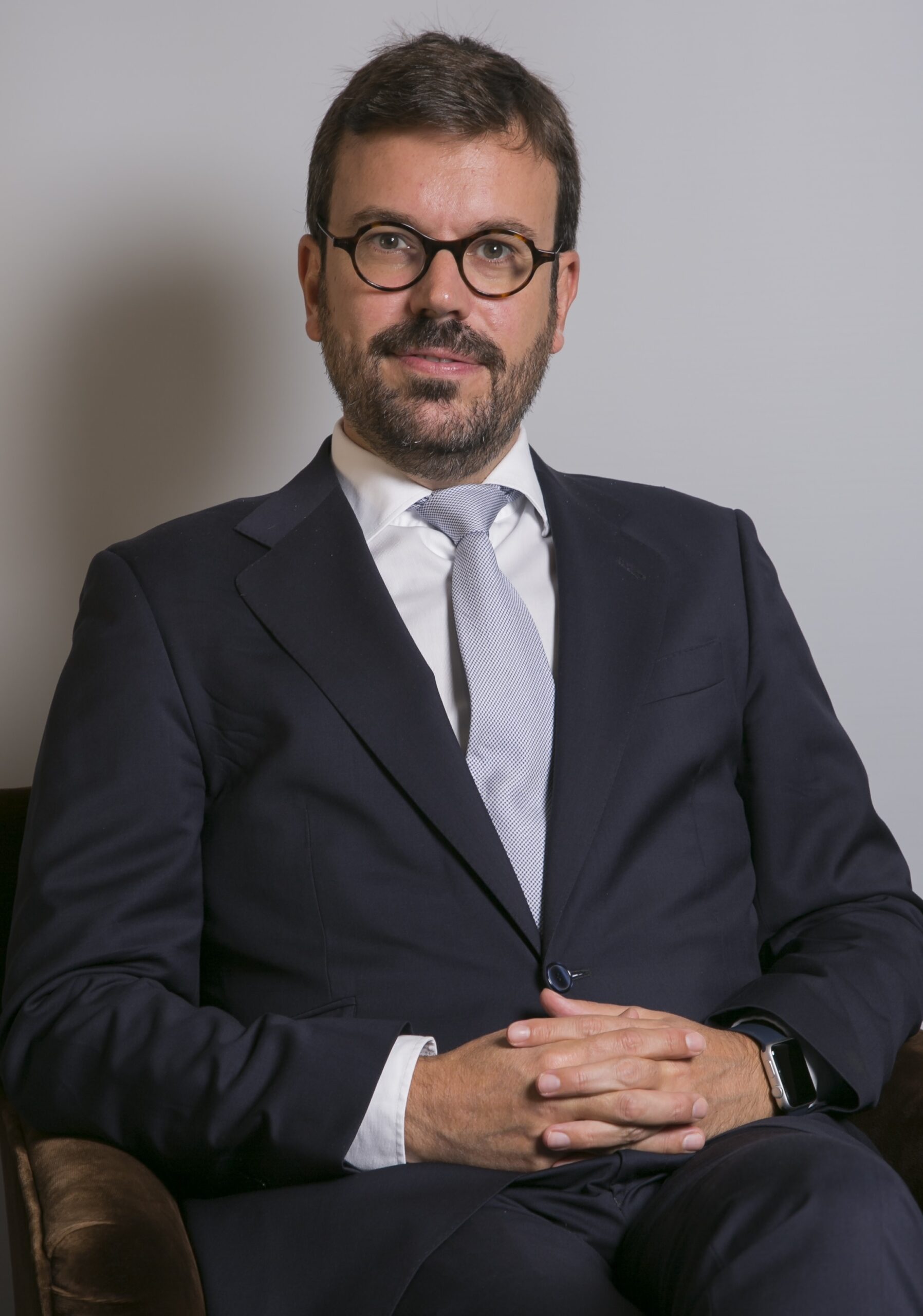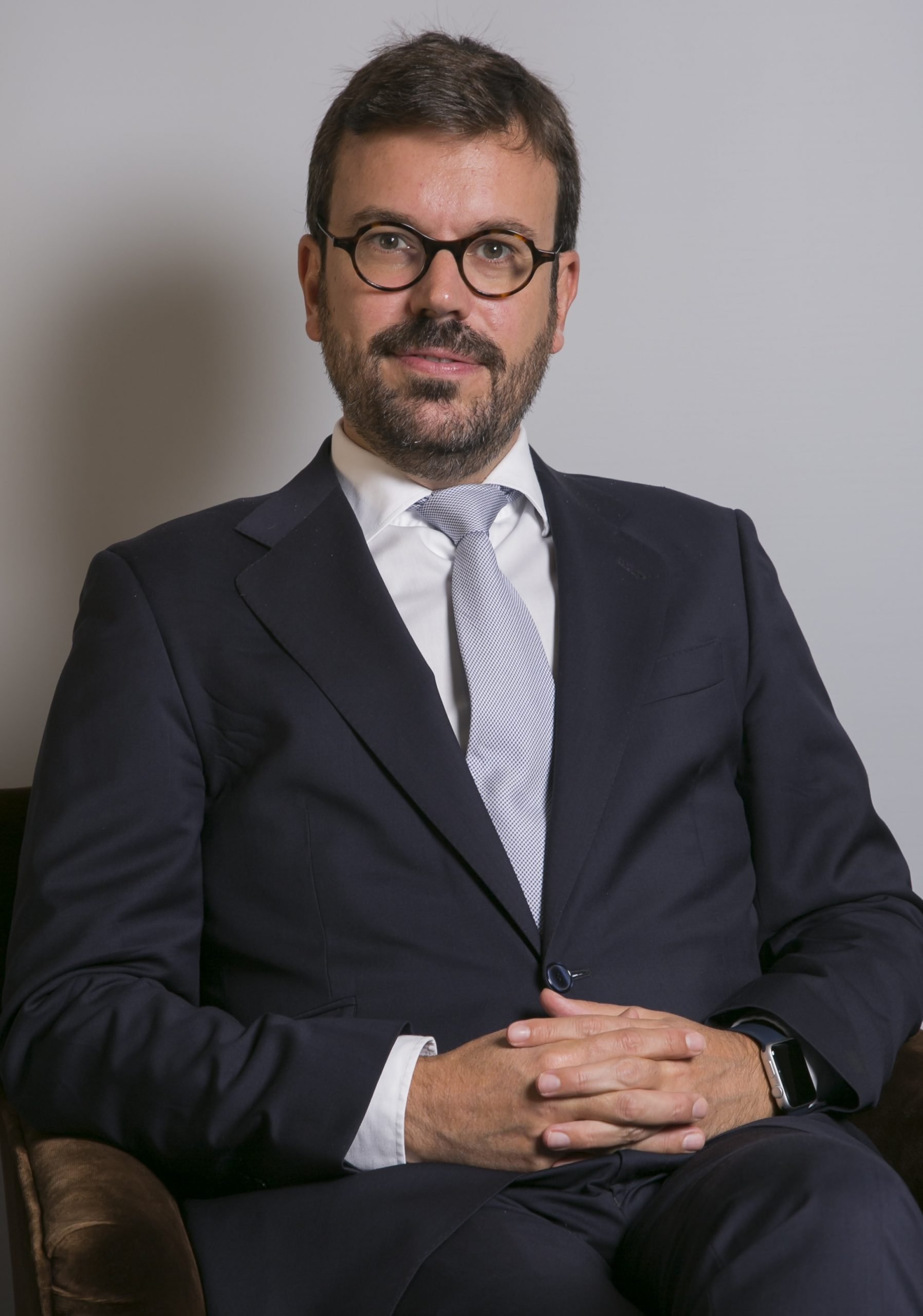Ferran Foix, Gómez-Acebo & Pombo´s London office managing partner

Ferran Foix: “I have great confidence in the adaptive capacity and resilience of the human being”

We travelled virtually to the United Kingdom to meet Ferran Foix, managing partner of Gómez-Acebo & Pombo’s London office for more than two years, although he has been with the firm for more than twelve. His international experience as a Corporate lawyer offers more than 15 years of experience in main law firms in Spain and the United States. Qualified to practice in Spain and New York, his main practice areas include Corporate Finance, Capital Markets, Restructuring, Leveraged Finance, Project Finance, M&A and Private Equity. In addition to his strategic location, ingredients such as BREXIT and the COVID-19 pandemic make this Catalan lawyer ́s profile even more interesting for an interview with him in this “Partners Abroad” section.
By Desiré Vidal
First of all, how have you experienced the situation caused by COVID-19 both personally and professionally?
On a personal level, this pandemic has affected us all. Restrictions on movement, social distancing, disruption of routines and, in some cases, illness and loss of loved ones, is not easy for anyone. Like most people, I am living this situation with concern about the impact it is having on people’s lives. And, like so many people, I had to live close to the death of a family member from COVID-19. But I have also first-hand witnessed the dedication and generosity of many people and have great confidence in the adaptive capacity and resilience of the human being. Professionally, all the staff at the London office have been working remotely since the beginning of the pandemic. The firm’s technological environment has allowed us to continue working from home without any interruption. Before the pandemic, Gómez-Acebo & Pombo had started to implement a remote working plan to allow a better balance of personal and professional life, and this has helped us to be better prepared for what has come afterwards. I think we have all learned in this period that you can be very efficient by working remotely. No face-to-face meetings have been held, nor have we attended any events or conferences, which have either been entirely cancelled or have adopted a virtual format. Of course, we missed personal contact, but this has been replaced by frequent virtual meetings with our clients and internal teams. We are now adapting the office for return when it is possible, incorporating the necessary security measures to avoid contagion.
Despite the fact that we are in a transitional period, the BREXIT effect has already begun to be felt, especially in certain sectors, in order to try to determine how trade flows will look, the situation of workers, etc. In this sense, have you noticed a higher volume of Spanish companies seeking legal assistance to solve questions related to their business with the UK? What kind of companies or individuals ask for your advice and what kind are most of these “new” demands?
From the London office we advise mainly on international investment and financing transactions in Spain and Portugal, mainly in the field of Capital Markets, Financing, Restructuring,Private Equity and M&A. London is one of the most important financial centres in the world and many of these transactions are channelled through this office. For us this is a busy time due to the large number of clients who need legal advice in relation to their investments and operations in Spain, partly (but not only) as a result of the Brexit and COVID-19. Due to the uncertainties generated by the Brexit, some of the investors stopped or reduced their investments in the United Kingdom and have been more focused on operations in Continental Europe, which has meant an increase in work for us. We have also advised some Spanish and Portuguese companies on the analysis of the impact of Brexit on their UK businesses and on the preparation of contingency plans. Many of these consultations were related to Regulatory, Contractual, Tax or supply chain and distribution issues. Lately, there has been less talk about Brexit because it seemed that its impact was already taken for granted. But it is possible that the situation generated by COVID-19 will change things. June 30th was the deadline for agreeing an extension of the transitional period, which in principle is scheduled to end on December 31st 2020. During this transitional period the United Kingdom and the European Union must negotiate the new agreement that will govern future relations between the two. The negotiations, which had been paralysed by COVID-19, are now being resumed and many voices are already being heard calling for an extension of the transitional period to be agreed due to lack of time and so that the economic impact that Brexit is expected to have does not coincide in time with the economic consequences of COVID-19.
The legal sector in the UK is very advanced in terms of the development of technological tools and their application to the legal world. What is your experience in this regard? Is the Administration of Justice more advanced in the UK than in Spain? How have you handled smart working?
The UK legal market is the second largest in the world, after the United States, and accounts for a third of the legal market in Europe. It is therefore logical that a significant part of the technological developments. applicable to the legal sector are mainly directed at this market, although they then generally end up spreading and scaling up to other markets as well. Spanish law firms such as Gómez-Acebo & Pombo have made enormous progress in recent years in the development and use of technological tools that allow us to work, advise and communicate with our clients more efficiently and, in terms of technological development, we are now very close to our English counterparts. Regarding the Administration of Justice, it is true that in the United Kingdom steps have been taken towards digitalisation, which allow greater procedural efficiency. In fact, in these times of the COVID-19 in the United Kingdom, virtual hearings have been held by the courts that have allowed procedural activity to continue in spite of social distancing measures. In Spain, the modernization and digitalization of the Administration of Justice is becoming increasingly necessary and urgent, and telematic hearings are also beginning to be held with the aim of maintaining social distance and encouraging the unblocking of the courts. As I said before, the COVID-19 situation has forced all of us to test the technologies that allow us to work remotely, and it has been shown that it is possible to do so while being equally efficient and, according to some, even more so. I therefore believe that smart working is here to stay in the legal sector as well. When all this has happened, we will return to a certain presence because human contact is important, but providing greater flexibility thanks to the tools that smart working allows.
The large M&A and financing transactions that have taken place in recent months have required the participation of cross-border or multi-jurisdictional teams. How has your experience been in this regard? Do you have any examples of deals that you can tell us about?
Indeed, more and more investment and financing operations involve several jurisdictions and this forces us as a firm to have a very international approach. Many of our lawyers have completed some of their legal training abroad and had experience as lawyers in other jurisdictions. In my case, for example, after graduating in Law in Spain and working for two years in a Spanish firm, I obtained a Master of Laws degree from New York University and worked for five years in New York as an associate in an American global firm. This is becoming increasingly common and at Gómez-Acebo & Pombo we encourage our lawyers to live this type of training and professional experience abroad, which helps them to be better prepared for an increasingly globalised sector. In cross-border transactions to which the law and rules of several jurisdictions are applicable, it is necessary to involve different legal teams that can advise the client on all legal aspects of the transaction. As an example, we recently advised the coordinating and underwriting banks on the refinancing of a pharmaceutical group through loans and bonds. The transaction involved aspects of Spanish, American and English law. In order to cover all relevant jurisdictions, we advised our clients together with an American and an English law firm, and the company was also advised by two law firms from different jurisdictions.
Do the areas of law most affected (positively/negatively) by the crisis (either by the volume of client demands or operations) in the UK coincide with those in Spain?
They usually do. For example, M&A and Private Equity transactions have decreased, but Financing and Restructuring transactions have increased. The Labour area has also been very active in both jurisdictions and the Litigation area, which at the beginning of the crisis was paralyzed by the suspension of court activity, is now having a very significant increase in activity due to the accumulation of old and new cases that have occurred as a result of the crisis. There are also some specialties by jurisdiction, mainly due to different regulations. For example, in the Capital Markets area, there is quite a lot of activity in Equity market in the United Kingdom, mainly capital increases with the exclusion of pre-emptive rights, while in Spain and the rest of continental Europe debt operations predominate.
How is the post-COVID-19 crisis affecting UK-based firms? What solutions are they taking to tackle it; dismissals, mergers, new lines of business?
Generally speaking, the legal sector is not one of the sectors most affected by this crisis. It can change the type of legal advice our clients need and we have to adapt to these new needs that are emerging. In our case, we have continued to operate normally and some teams even with a greater workload. We are therefore fortunate that we have not had to take any adjustment measures. Some British firms are applying greater expenses control and delays in new investments and hirings until the real impact of the crisis on their business can be assessed. Others have also taken advantage of the furlough system approved by the British government for certain employees, or of salary cuts. In recent years, some trends in the English legal sector have been mergers with firms from other jurisdictions (e.g., English firms with American firms) and the IPOs of some firms.
What is the UK’s view of the legal sector in Spain and how has the crisis been handled in general?
In general, foreign clients and English firms have a very good opinion of the Spanish legal sector and the advice they receive from Spanish firms. In addition, since the previous crisis in 2008 there have been a number of improvements in the Spanish legal system that help to generate greater confidence among foreign investors when it comes to investing in Spain, such as the reform of the Insolvency law. Regarding this crisis, the feeling is that in Spain, as in most countries, the necessary measures are being taken to fight against the health crisis and at the same time mitigate its economic impact. Furthermore, the response of the European institutions is also helping the economy and the markets to continue to operate with a certain normality. I am confident that with the progress being made and the measures being taken we will manage to overcome this situation as soon as possible.
To read the article in full please download issue N.96 here












